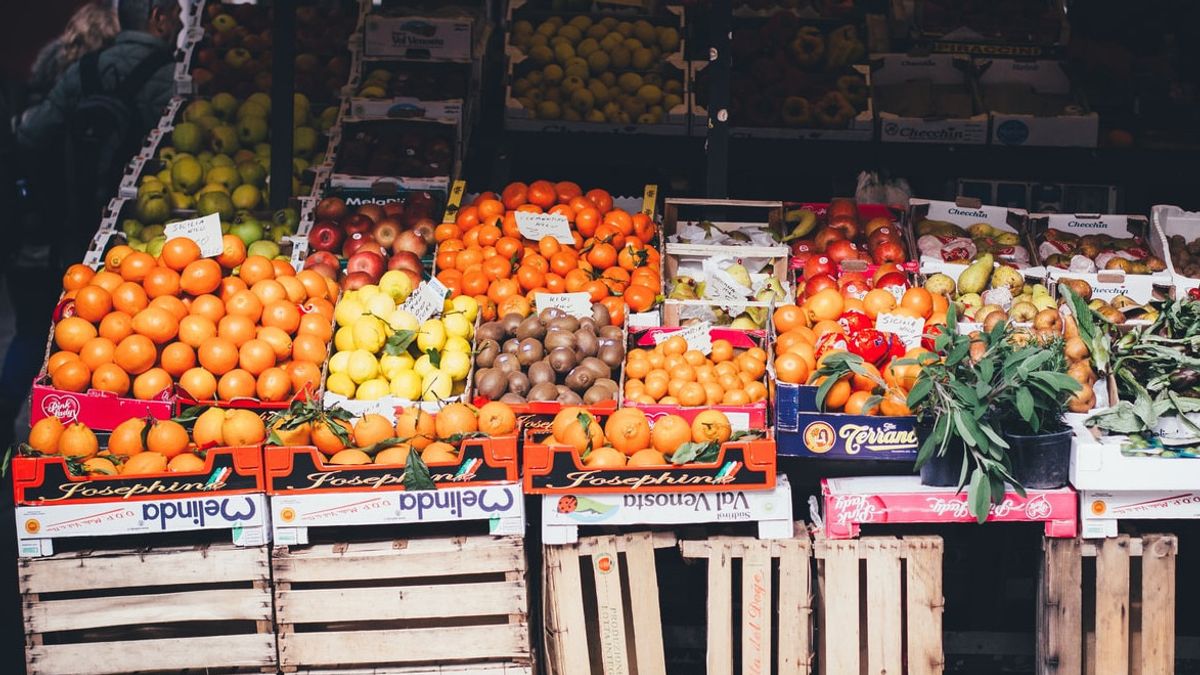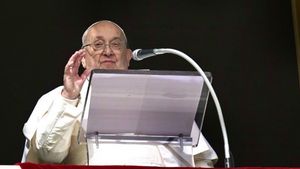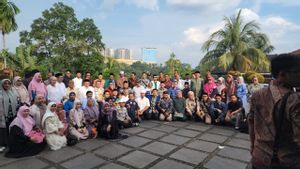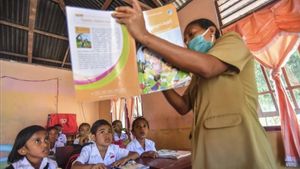JAKARTA - Alleged problems with the Issuance of Recommendations for Import of Horticultural Products (RIPH) for fruit, are increasingly surfacing. Now, an email from Jeff Scott, CEO of the Australian Table Grape Association (ATGA) is circulating on social media, questioning the granting of import quotas through RIPH to four companies suspected of being affiliated with a domestic importer.
In his letter, Jeff admitted to discussing this with two ministers in Australia, namely Minister of Agriculture and Irrigation David Littleproud and Minister of Trade Simon Birmingham, that this friendly country is ready to help export fruit in the midst of conditions in Indonesia which are affected by the corona virus or COVID-19.
However, Jeff then also wanted his government to discuss this again, because it was later discovered that four import quotas were given to four companies that were suspected of having the same owner, namely the initials H. In the letter, Jeff also mentioned that the businessmen spent a lot of money to get the quota.
In addition, Jeff also said that H sold the quota for US $ 11,000 per container to another importer. Still according to the letter in circulation, the Australian side also claimed to have summoned the Indonesian Ambassador to Australia to discuss this matter.
However, the Indonesian Ministry of Foreign Affairs admitted that they had no information about the summons. "It's best to ask this to the Ministry of Agriculture (Ministry of Agriculture)," said acting (Plt.) Ministry of Foreign Affairs spokesperson Teuku Faizasyah when confirmed by reporters, Monday, March 16.
Furthermore, Faizasyah also suggested that this matter be asked of the Ministry of Trade. "Because of the import door at them [the Ministry of Trade]," continued Faizasyah.
INDEF Executive Director, Enny Sri Hartati, said the government must ensure the accuracy of the electronic letter. Enny said this could set a bad precedent for the government. This is because the President was once committed to eradicating oligopoly, let alone monopoly.
"If the letter is true, I suspect fruit exporters in Australia are protesting because they are worried about the continuity of their business, because the WTO is very strict about regulations, so the government must follow up on this information," said Enny in a statement received by VOI.
According to Enny, this creates a very unfair competition. He suspects that the Australian wine exporters are not kind enough to tell the government, but they are worried that the oligopoly will hurt them.
He considered that this incident should be a moment for evaluating the quota system, which he assessed as having a high risk of moral hazard. Moreover, currently imports have been disrupted by the corona virus.
"This is because the supply of imported fruit is disrupted. In fact, there is an suspicion that this quota is managed by a certain party, this is fishing in murky water, it could be subject to economic subversion," he said.
He urged the government to review the quota system, because there is a risk that the quota will be issued based on the signature of the official. This means that it is very possible that there are interested parties who benefit. Meanwhile, the tariff system, he continued, would create a competitive business climate.
The chairman of the Indonesian Horticultural Association, Anton Muslim Arbi, admitted that from the start he had received information about the granting of fruit import quotas that were not transparent. He also admitted that he heard that the quota was allegedly given to several companies but it belonged to one person.
"This means that the quota should not be given, for example, only the company that owns one person. If the company owns one person, it can be said to be a cartel," said Muslim.
If this practice occurs, Muslims say, it is not wrong to have an accusation against the government playing for a fruit import cartel.
Regarding the information on the protesting Australian exporters, Muslim suspected that there was a leak of information that was questioned by various parties because the government was not open to providing quotas for fruit imports and there were frequent delays in issuing RIPH. The government must be transparent and answer the issue of fruit import quotas which is a question of fruit exporters in Australia.
On the other hand, Secretary of the Directorate General of Horticulture at the Ministry of Agriculture, Liliek Srie Utami, said the issuance of RIPH was processed online for all applicants based on MOA 39/2019 jo MOA 02/2020.
"The process of giving RIPH is carried out transparently and can be monitored online," said Liliek, Friday, March 14.
He said, until March 12, 2020, RIPH of grapes that had been issued was for 26,470 tons. "Today it looks like there will be another issue (RIPH), but I don't know what commodities are for and how many," he said.
Meanwhile, the Minister of Agriculture (Mentan) Syahrul Yasin Limpo (SYL) did not respond to questions about RIPH and the letter from the Australian Grape Entrepreneurs Association. When intercepted by journalists after an agenda at his ministry, Friday, March 13, the Minister of Agriculture still did not answer questions about RIPH.
The English, Chinese, Japanese, Arabic, and French versions are automatically generated by the AI. So there may still be inaccuracies in translating, please always see Indonesian as our main language. (system supported by DigitalSiber.id)













